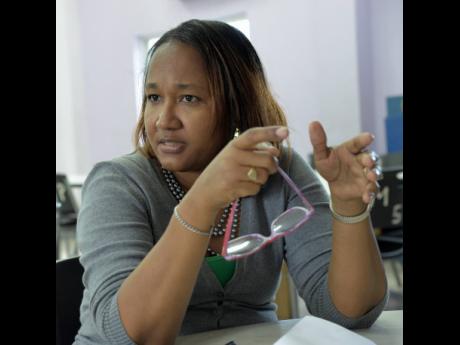Schools brace for September online hurdle
One-third of respondents in a Don Anderson-Market Research Services poll have found favour in online teaching based on their review and observation of their children’s experience.
Schools were shuttered in mid-March as part of COVID-19 containment measures, catapulting classes into remote mode.
The poll, conducted between July 15 and 20 among 1,050 respondents aged 18 years and older, found that 19 per cent were not favourably disposed to the method, while 48 per cent had no opinion on the issue or had no children in school and did not feel competent to respond.
Principal of George Headley Primary School, Aretha Willie, told The Gleaner on Monday that the feedback she has received from teachers showed that students were eager in the initial stages, but lost interest as the term wore on.
Come September, most schools will be taking on a hybrid approach – face-to-face and online teaching – in accordance with guidelines issued by the education ministry.
“There is a concern that when we send these children home for the online aspect of it, that the supervision might be lacking,” Willie told The Gleaner.
“The problem was not so obvious from March, as many parents were working from home, but many parents have since returned to the work environment and so we are concerned that many students will be left unsupervised.”
LEARNING CHALLENGING
Willie found support in principal of Holy Family Primary School, Christopher Wright.
Wright predicts that online learning will be particularly challenging for primary-school children in grades one to three.
“If you are going to engage them online, they need the support at home and proper support, not just someone who is sitting there – someone who can manipulate,” Wright said.
Wright added: “If the teaching is modified, retention shouldn’t be a challenge. However, children who are not accustomed to that instruction may have difficulty retaining what they have learnt.”
GAPS IN KNOWLEDGE
Meanwhile, Willie said she is not averse to online teaching but noted that some students will progress normally, while others who were struggling prior to the pandemic may regress.
With social-distancing protocols in place, also reducing the teacher-to-student ratio, she is hoping that the gaps in knowledge will be easier to fill come September.
“Our concern really is the curriculum. How much of the curriculum will be trimmed during the period, to play catch up, if you may?” Willie questioned.
Three other principals with whom The Gleaner spoke all cited Internet connectivity and access to devices as challenges to online learning.
They intend to continue providing worksheets to students who may be so affected on the days they are not scheduled for face-to-face instruction.
Ainsworth Williams, principal of John Austin All-Age School, expressed that “connectivity is non-existent” in the Clarendon community, which also has high unemployment.
Though he stated that online learning was the way to go, he is aiming to have as many students in face-to-face sessions come September.
Williams said that the church, which is in proximity to the school, will be retrofitted as a classroom to facilitate additional students.

